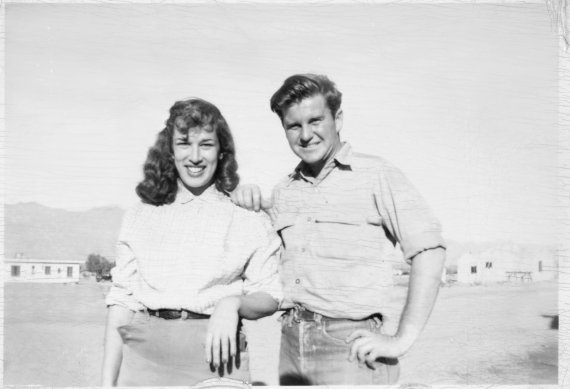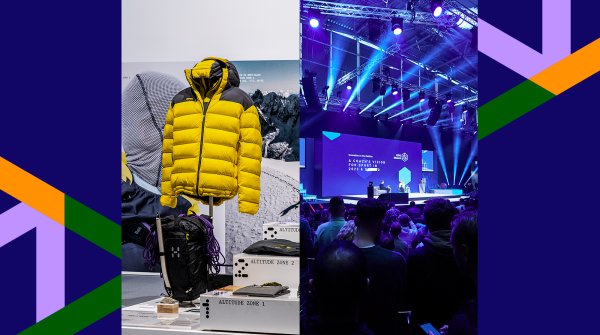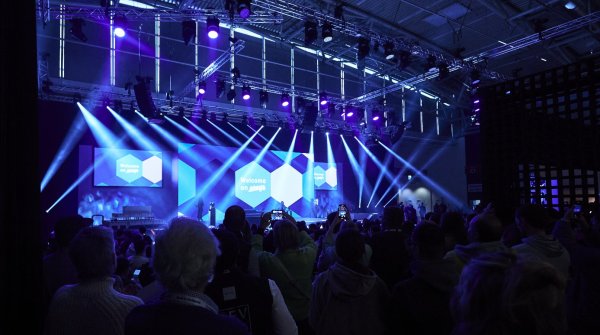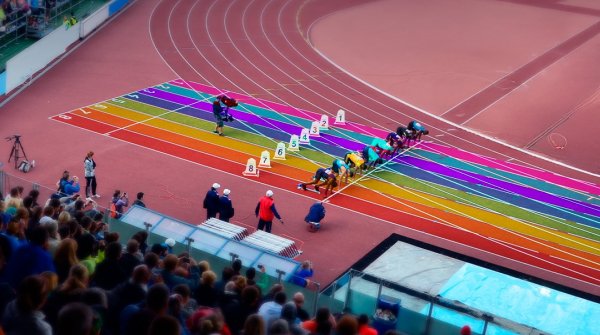
"Tested tough" - this is the famous seal of approval of a true legend in the sports business. Gertrude Boyle, a German-born businesswoman and visionary, has been president of the US company Columbia Sportswear since 1970.
The daughter of a Jewish textile manufacturer emigrated to Portland, Oregon in 1937. After the death of her husband, she took over the company and saved it from bankruptcy.
With the development of innovative sports and outdoor apparel and an inimitably humorous marketing strategy, Gertrude Boyle - also known as the "tough mother" of sports - made Columbia Sportswear an influential sportswear company during the 1980s and became a star in the USA with her legendary commercials. In the adverts, she forced her son Timothy - now CEO of the company - into tough endurance tests with Columbia apparel.
Gertrude Boyle is also involved in various aid projects to fight cancer and support the rights of children. In 2014, she donated $100 million to the Knight Cancer Institute.
Gertrude Boyle is honoured for her life's work with the ISPO Cup 2018.
ISPO.com: You were born in Augsburg und left 1937 with your parents from Germany. Do you still have connections to Germany and do you follow what is happening in Germany?
Gertrude Boyle: I was fairly young, 13, when my family left Germany, and I didn’t return for another 60 years. Today, I don’t have many connections, but I do find it important to stay up on the news, especially since Columbia is a global company and we do plenty of business in Europe.
In 1960 you created your first product by yourself, a fishing vest. But what is the product or innovation you are most proud of?
When I created the fishing vest, I learned how important it is to listen to the needs of your customer. My husband Neal and his fishing buddies provided lots of advice, so I developed a product that fit those needs. We continued this way of thinking when we developed the Bugaboo jacket, which put Columbia on the map for skiwear.
It was inspired by the success of one of our hunting jackets. When you’re hunting, you need a really warm coat, but after walking a mile or two, you get hot. By combining two jackets into one, we were able to offer versatility to tackle any conditions. Then we thought, why not bring this over to the ski industry? We named the jacket after The Bugaboos, one of my son Tim’s favorite mountain ranges, and it was a huge success!

You became a cult figure because of the TV spots for “One tough mother”. Is there one spot which stands out?
All of the “One Tough Mother” ads were designed to make you laugh. One that stands out is when I put Tim through the car wash and said, “That’s how we test our garments.” After that one, sales shot up. Even now, I always say, “Early to bed, early to rise, work like hell and advertise.” In recent years, I’ve been in more of our videos, but now they let me test the gear on celebrities like Zac Efron instead of Tim.
You supported the Special Olympics team of the USA and were very engaged in the fight against cancer. How important is social engagement for you?
We have the power to choose where our money goes, and I am a strong believer in putting my money toward causes that do good. The Special Olympics and cancer research are two areas I feel personally attached to and are positively impacting people’s lives. If I can use my good fortune to better the lives of others, I’m going to do it.
Over the course of almost five decades Columbia developed from a family-owned company to a billion-dollar group. What was the most important decision on this way retrospectively?
I took over Columbia in 1970 and we had a lot of difficulties that first year. At that point, I considered selling the company. A man wanted to buy it for $1,400 and you know what I said? For $1,400, I’ll run it into the ground myself. People doubted us, but from then on, I learned to trust my instincts, never take no for an answer and hire good people to help us along the way. My instincts must be pretty good!
Is there something you would like to change looking back?
No. You cannot change history. Each and every decision has helped us get to where we are today.
How much has the outdoor industry changed in the last decades?
The industry is always changing and growing with different styles and technology and ways to sell your product, but one thing has stayed the same. People need gear that helps them enjoy the outdoors.
In which direction will outdoor develop in the next couple of years?
I can’t say for certain, but of course, everything changes. I think the outdoor industry will continue to grow as long as we keep making products for people to get outdoors. Anyone can enjoy the outdoors and it doesn’t take much more than a good jacket, and luckily, I know just the place to get one.
You were at the top of Columbia for more than four decades and therefore you are a role model for a lot of women in business. Which advice can you give them for their own professional careers?
In the workplace, the focus should be on hard work and dedication, regardless of your gender. I’ve always found that the colleagues you want to spend your time with aren’t paying attention to your gender. They are paying attention to what you bring to the table, so make sure you’re rolling up your sleeves, taking initiative and doing great work.
Which role had ISPO Munich for the development of Columbia?
Having a platform like ISPO Munich to share our innovations and interact with others in the sports industry inspires us to create great gear.
 MunichLast Week at ISPO
MunichLast Week at ISPO
- ISPO awards
- Mountain sports
- Bike
- Design
- Retail
- Fitness
- Health
- ISPO Job Market
- ISPO Munich
- ISPO Shanghai
- Running
- Brands
- Sustainability
- Olympia
- OutDoor
- Promotion
- Sports Business
- ISPO Textrends
- Triathlon
- Water sports
- Winter sports
- eSports
- SportsTech
- OutDoor by ISPO
- Heroes
- Transformation
- Sport Fashion
- Urban Culture
- Challenges of a CEO
- Trade fairs
- Sports
- Find the Balance
- Product reviews
- Newsletter Exclusive Area
- Magazine




